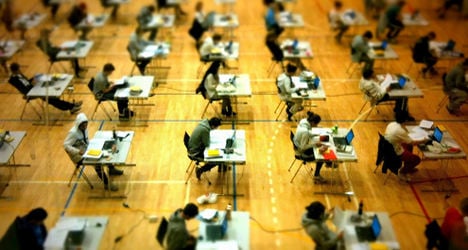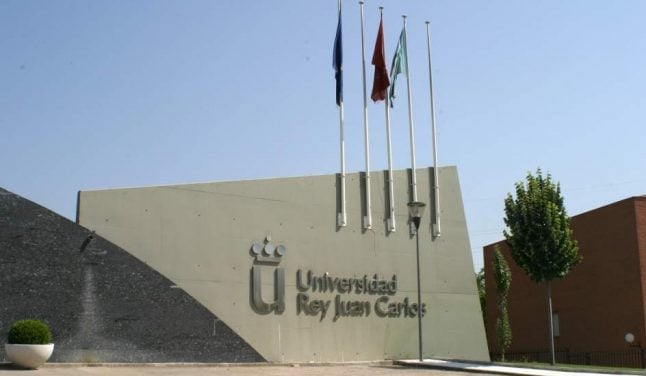With unemployment in France reaching record levels, school pupils are under more pressure than ever to succeed in their exams and give themselves the best possible start in life.
But unfortunately, many pupils have shown they are willing to get the best results by fair means or foul and the French government has been forced into action to stamp out cheating.
Bosses at the Ministry of Education want to make sure that more of those caught cheating receive the appropriate punishments. In 2012 two thirds of cheaters caught red handed were punished, compared to only half in 2011, but education chiefs want this ratio increased further.
For their part, teaching unions are supportive of stricter punishments.
“Over the last few years there have been many incidents of cheating, and for us it is unacceptable,” Daniel Roben from the union SNES told The Local.
“Exams are designed to give an equal chance to all pupils, so anything which acts against that equality should be punished severely,” he added.
Robben added that the amount of information on the internet as well as the fact that most youngsters have smartphones has made it easier for pupils to cheat and harder for teachers to detect them.
Last year authorities took the step of allowing teachers in France the use of special smartphone detectors to try and identify anyone tempted to secretly Google the answers.
This summer the tool will be more widely used and all headteachers across the country will be armed with the devices, which make a noise whenever a phone is turned on.
Authorities want to strengthen the punishments handed out, the harshest of which is a five year ban before a pupil can retake the baccalaureate exam. This penalty was slapped on 140 pupils last year, compared to 67 in 2011.
Any instance of cheating or even attempted cheating will now be recorded in a pupils school handbook.
Teaching unions in France, however, have voiced fears that pupils could pay for their mistakes for the rest of the lives if the punishments are too severe.
“There is a risk of a double punishment, that is to say that pupils are punished for their whole lives, for having cheated in their baccalaureate exams,” Claire Krepper, from the union SE-Unsa told Europe1 radio.
Concerned that certain pupils have bragged about cheating on the internet once they are in the clear, France’s Education Minister Vincent Peillon wants authorities to pursue the fraudsters even after they have graduated from school.
Under the proposals, authorities will have the powers to annul a pupil’s diploma and allow a jury to decide what the real results should be.
Once again, the teaching unions have reservations regarding this point.
“We have asked how long after the exams we would be able to pursue a candidate, knowing that the papers are destroyed after one year,” said SE-Unsa’s Krepper.



 Please whitelist us to continue reading.
Please whitelist us to continue reading.
Member comments